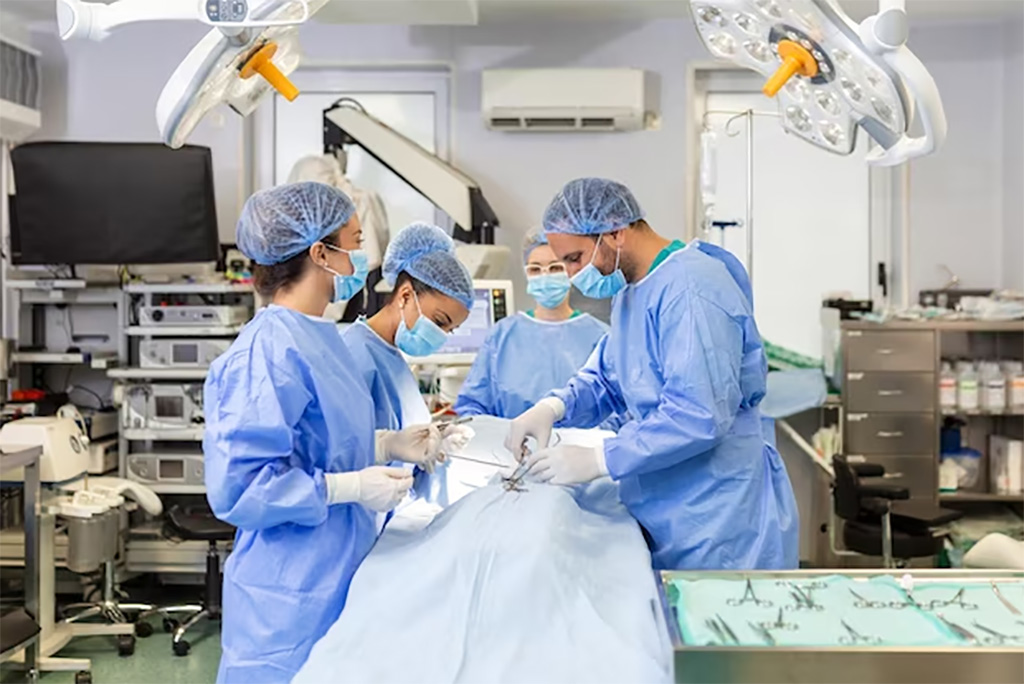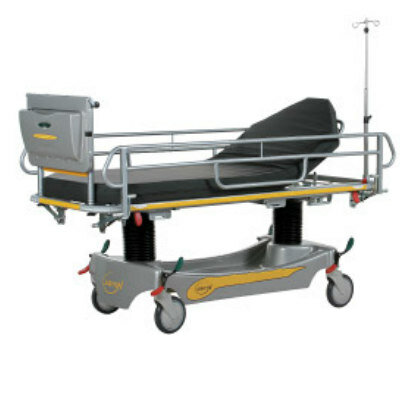Machine Learning Model Accurately Identifies High-Risk Surgical Patients
|
By HospiMedica International staff writers Posted on 18 Jul 2023 |

Prior to the COVID-19 pandemic, complications occurring 30 days post-surgery were the third leading cause of death worldwide, claiming approximately 4.2 million lives annually. Recognizing patients at high risk for post-surgical complications is crucial to improving survival rates and reducing healthcare costs. Researchers have now employed machine learning to develop and implement an efficient, adaptable model for identifying hospitalized patients at high risk for post-surgical complications.
Researchers and physicians at the University of Pittsburgh (Pittsburgh, PA, USA) and UPMC (Pittsburgh, PA, USA) developed this model by training the algorithm on the medical records of over 1.25 million surgical patients. The focus of the model was on mortality and the occurrence of major cerebral or cardiac events, such as stroke or heart attack, following surgery. The model was then validated using the records of another 200,000 surgical patients from UPMC. After validation, the model was implemented across 20 UPMC hospitals. Each morning, the program reviews the electronic medical records of patients scheduled for surgery and flags those identified as high risk. This alert enables clinical teams to improve care coordination and introduce prehabilitation measures before surgery, such as healthier lifestyle choices or a referral to the UPMC Center for Perioperative Care, thus lowering the risk of complications. Clinicians can also activate the model on demand at any time.
Additionally, the research team compared their model with the industry standard, the American College of Surgeon’s National Surgical Quality Improvement Program (ACS NSQIP), to further gauge its effectiveness. The ACS NSQIP, used at hospitals nationwide, requires manual input of patient information by clinicians and is unable to make predictions if data is missing. The researchers found their model to be more effective at identifying high-risk patients than the ACS NSQIP. As the model continues to be fine-tuned and developed, the researchers plan to train the program to predict the likelihood of other complications, such as sepsis and respiratory issues, that often result in prolonged hospital stays after surgery.
“We designed our model with the health care worker in mind,” said Aman Mahajan, M.D., Ph.D., M.B.A., chair of Anesthesiology and Perioperative Medicine, Pitt School of Medicine, and director of UPMC Perioperative and Surgical Services. “Since our model is completely automated and can make educated predictions even if some data are missing, it adds almost no additional burden to clinicians while providing them a reliable and useful tool.”
Related Links:
University of Pittsburgh
UPMC
Latest Critical Care News
- Novel Cannula Delivery System Enables Targeted Delivery of Imaging Agents and Drugs
- Ingestible Smart Capsule for Chemical Sensing in the Gut Moves Closer to Market
- Novel Intrabronchial Method Delivers Cell Therapies in Critically Ill Patients on External Lung Support
- Generative AI Technology Detects Heart Disease Earlier Than Conventional Methods
- Wearable Technology Predicts Cardiovascular Risk by Continuously Monitoring Heart Rate Recovery
- Wearable Health Monitoring Device Measures Gases Emitted from and Absorbed by Skin
- Groundbreaking Technology Rapidly Detects Airborne Influenza Viruses
- Handheld Device Could Transform Heart Disease Screening
- Flexible Semi-Autonomous Robot Could Deliver Medicine Inside Body

- Neurorestorative Treatment Strategies Hold Promise for Most Severe Forms of Epilepsy
- Gene Discovery Could Help Grow New Heart Arteries
- Study Discovers Invisible Transmission of Common Hospital-Associated Infection
- Non-Invasive Neuro-Ophthalmology Techniques Could Detect Brain Tumors Earlier
- Mass Manufactured Nanoparticles to Deliver Cancer Drugs Directly to Tumors
- World’s Smallest Pacemaker Fits Inside Syringe Tip

- AI-Powered, Internet-Connected Medical Devices to Revolutionize Healthcare, Finds Study
Channels
Surgical Techniques
view channel
Intravascular Imaging for Guiding Stent Implantation Ensures Safer Stenting Procedures
Patients diagnosed with coronary artery disease, which is caused by plaque accumulation within the arteries leading to chest pain, shortness of breath, and potential heart attacks, frequently undergo percutaneous... Read more
World's First AI Surgical Guidance Platform Allows Surgeons to Measure Success in Real-Time
Surgeons have always faced challenges in measuring their progress toward surgical goals during procedures. Traditionally, obtaining measurements required stepping out of the sterile environment to perform... Read morePatient Care
view channel
Portable Biosensor Platform to Reduce Hospital-Acquired Infections
Approximately 4 million patients in the European Union acquire healthcare-associated infections (HAIs) or nosocomial infections each year, with around 37,000 deaths directly resulting from these infections,... Read moreFirst-Of-Its-Kind Portable Germicidal Light Technology Disinfects High-Touch Clinical Surfaces in Seconds
Reducing healthcare-acquired infections (HAIs) remains a pressing issue within global healthcare systems. In the United States alone, 1.7 million patients contract HAIs annually, leading to approximately... Read more
Surgical Capacity Optimization Solution Helps Hospitals Boost OR Utilization
An innovative solution has the capability to transform surgical capacity utilization by targeting the root cause of surgical block time inefficiencies. Fujitsu Limited’s (Tokyo, Japan) Surgical Capacity... Read more
Game-Changing Innovation in Surgical Instrument Sterilization Significantly Improves OR Throughput
A groundbreaking innovation enables hospitals to significantly improve instrument processing time and throughput in operating rooms (ORs) and sterile processing departments. Turbett Surgical, Inc.... Read moreHealth IT
view channel
Printable Molecule-Selective Nanoparticles Enable Mass Production of Wearable Biosensors
The future of medicine is likely to focus on the personalization of healthcare—understanding exactly what an individual requires and delivering the appropriate combination of nutrients, metabolites, and... Read more
Smartwatches Could Detect Congestive Heart Failure
Diagnosing congestive heart failure (CHF) typically requires expensive and time-consuming imaging techniques like echocardiography, also known as cardiac ultrasound. Previously, detecting CHF by analyzing... Read moreBusiness
view channel
Expanded Collaboration to Transform OR Technology Through AI and Automation
The expansion of an existing collaboration between three leading companies aims to develop artificial intelligence (AI)-driven solutions for smart operating rooms with sophisticated monitoring and automation.... Read more

















